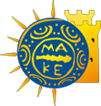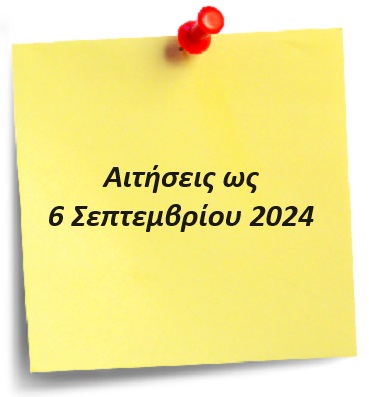Πρόσκληση για ομιλία του κ. Ιωσήφ Σηφάκη
ΑΡΙΣΤΟΤΕΛΕΙΟ ΠΑΝΕΠΙΣΤΗΜΙΟ ΘΕΣΣΑΛΟΝΙΚΗΣ
ΣΧΟΛΗ ΘΕΤΙΚΩΝ ΕΠΙΣΤΗΜΩΝ
ΠΡΟΣΚΛΗΣΗ
Η Κοσμητεία της Σχολής Θετικών Επιστημών του Α.Π.Θ., σας προσκαλεί
στην ομιλία του διακεκριμένου Καθηγητή του Ecole Polytechnique
Federale de Lausanne (EPFL), Διευθυντή του Centre de Recherche
Integrative της Grenoble, ακαδημαϊκού που έχει τιμηθεί με το βραβείο
Τuring (αντίστοιχο των Νοbel στην πληροφορική) κ. Ιωσήφ Σηφάκη
με θέμα: "Is Computing a Science?"
που θα πραγματοποιηθεί την Παρασκευή 4 Μαρτίου 2016 και ώρα 11 π.μ.,
στην Αίθουσα Α31 της Σχολής Θετικών Eπιστημών του ΑΠΘ.
Η εκδήλωση είναι ανοιχτή για το κοινό.
Ο Κοσμήτορας της Σχολής Θετικών Επιστημών
Καθηγητής Χαρίτων Χιντήρογλου
Διάλεξη
Initially considered rather as applied technology, over the years
computing resisted absorption back into the fields of its roots and
developed an impressive body of knowledge. We discuss how computing is
related to other domains of knowledge and draw conclusions about the
very nature of the discipline.
Computing deals with the study of information processing.
Information is defined as a relationship between the syntax and the
semantics of a language. It is an entity independent from matter and
energy. It is not subject to space-time constraints. It is non
material, although it needs media for its representation.
Computing has developed as a domain of knowledge from prior
knowledge about computation based on mathematics and logic. In
contrast to physical sciences, it focuses on the design of artefacts.
The dominant paradigm is synthesis rather than analysis to understand
and predict phenomena. Nonetheless, both computing and physical
sciences share a common objective: the study of dynamic systems.
Physical phenomena can be understood not only through the study of
immutable laws, but also as computational processes. Physical systems
are inherently synchronous and driven by uniform laws. Computing
systems ignore physical time and are driven by specific laws defined
by their designers. Despite these differences, computing and physical
sciences are rooted in two common paradigms that characterize any
scientific approach. The first is the application of modularity
principles to cope with the inherent complexity of phenomena. The
second is the use of abstraction hierarchies of models that describe
phenomena at different levels of detail. We discuss similarities and
differences in the application of these paradigms.
A central problem in computing is the study of design as a formal
process leading from requirements to correct systems. Providing design
with scientific foundations raises several deep theoretical problems
including the conceptualization of needs using declarative languages,
their proceduralization and implementation. Additionally, design
“scientization” seeks the purposeful and coherent integration of
methods through the study of general semantic models, of expressive
component frameworks and most importantly, of theory for achieving
correctness-by-construction. This endeavor and its overarching goal
are both intellectually challenging and culturally enlightening. It is
at least as important the quest for scientific discovery in physical
sciences and nicely complements the effort for scientific progress and
its fruition.
Job vacancies
SAN is looking for a Software Developer with passion for novel technologies who will develop the next generation software applications, working in a nice and friendly environment among creative, motivated people.
Qualifications:
2-years at least - Professional development in back-end programming (i.e. PHP, databases (SQL, MySQL, MongoDB, Oracle, etc.) or/and web development (HTML5, Javascript, CSS3, jQuery, etc) Excellent programming and design skills Experience working with technical and non-technical software users Portfolio
Responsibilities:
Designing, coding and debugging software applications and services. Working closely with other developers. Producing detailed specifications and writing programming code. Testing the product in controlled, real conditions before the release.
It would be appreciated:
Source to be sent attached with the CV Bachelor's degree in Computer Science or equivalent experience Experience in professional designing of software application interfaces Strong software engineering skills are a must
About you: to be innovative, self-motivating, creative, positive, pro-active and passionate about your work
Why should you join us:
We work as a team. We are close to each other as a family. Main aim of SAN is whoever works with us to be happy and delighted.
Application and contact
We are looking for talents with passion and willingness to do big things in life. If you believe that you have what it takes then apply now!
Live and work in Thessaloniki, one of the most beautiful cities in Greece.
Send your CV to contact@san-soft.com
Site http://www.san-soft.com/
Παράταση προθεσμίας υποβολής τροποποιητικής δήλωσης μαθημάτων
Σας ενημερώνουμε ότι δίνεται παράταση στην προθεσμία υποβολής τροποποιητικής δήλωσης μαθημάτων έως και τη Δευτέρα, 29/2/2016.
NEMO2016 Call for Participation_18 - 29 of July 2016, University of Vienna
Μπορείτε να βρείτε τη σχετική πρόσκληση συμμετοχής εδώ.
Ο Ιωσήφ Σηφάκης στη Θεσσαλονίκη Σάββατο 5-3-2016, ώρα 19:00
Οι Εκδόσεις Αρμός σας προσκαλούν στην παρουσίαση του βιβλίου του Ιωσήφ Σηφάκη «Η ΦΥΣΙΚΗ ΤΗΣ ΜΕΤΑΦΥΣΙΚΗΣ»
το Σάββατο 5 Μαρτίου 2016, στις 19.00 στην Αίθουσα του Δικηγορικού Συλλόγου Θεσσαλονίκης Τσιμισκή 103 & Βύρωνος, 3ος όροφος (η είσοδος είναι επί της οδού Ισαύρων)
Το βιβλίο θα παρουσιάσει ο συγγραφέας και θα ακολουθήσει συζήτηση.
ΕΙΣΟΔΟΣ ΕΛΕΥΘΕΡΗ
13ο Φοιτητικό Συνέδριο Διοικητικής Επιστήμης και Τεχνολογίας- 12/5/2016
Το 13ο Φοιτητικό Συνέδριο Διοικητικής Επιστήμης και Τεχνολογίας (ΦΣΔΕΤ) θα διεξαχθεί στις 12 Μαΐου 2016 στο χώρο των εγκαταστάσεων της ΕEΔΕ (Λεωφ. Ιωνίας 200 και Ιακωβάτων 60, Αθήνα). To ετήσιο ΦΣΔΕΤ αποτελεί πλέον ένα σημαντικό forum νέων ερευνητών στις γνωστικές περιοχές της Διοικητικής Επιστήμης και Τεχνολογίας. Οι προπτυχιακοί και μεταπτυχιακοί φοιτητές και υποψήφιοι διδάκτορες του τμήματος Εφαρμοσμένης Πληροφορικής του Πανεπιστημίου Μακεδονίας μπορούν να συμμετάσχουν στο συνέδριο παρουσιάζοντας κάποια εργασία τους ή τμήμα της ερευνητικής τους δουλειάς.
Ειδικότερα, το 13ο ΦΣΔΕΤ, με θέμα «Καινοτομία και Σύγχρονες Μορφές Επιχειρηματικότητας», αποσκοπεί σε μια πανελλήνια επιστημονική συνάντηση νέων μελών ΔΕΠ, υποψήφιων διδακτόρων, νέων ερευνητών αλλά και προπτυχιακών/μεταπτυχιακών φοιτητών με στόχο την παρουσίαση και συζήτηση θεμάτων σχετικά με τις σύγχρονες τάσεις της Διοικητικής Επιστήμης και Τεχνολογίας και τη συμβολή τους στη βιωσιμότητα και την ανάπτυξη καινοτόμων επιχειρηματικών δράσεων.
Ενδεικτικά θέματα του συνεδρίου είναι:
- Διοίκηση Παραγωγής
- Διοίκηση Συστημάτων Μεταφορών
- Διοίκηση Εφοδιαστικής Αλυσίδας
- Διοίκηση Ανθρωπίνων Πόρων
- Οργανωσιακή Ψυχολογία
- Business Intelligence
- Εταιρική Κοινωνική Ευθύνη
- Πράσινη Επιχειρηματικότητα
- Πληροφοριακά Συστήματα και Συστήματα Στήριξης Αποφάσεων
- Βελτιστοποίηση Συστημάτων Εφοδιαστικής Διαχείρισης
- Διαδίκτυο και Μέσα Κοινωνικής Δικτύωσης
- Ψηφιακό Μάρκετινγκ και Διαφήμιση
- Ευφυή Συστήματα και Τεχνολογία Λογισμικού
- Διαχείριση Γνώσης
- Data Mining & Business Analytics
- Ψηφιακή Καινοτομία & E-Business
- Επιχειρησιακή Πολιτική και Στρατηγική
- Διαδίκτυο και Ασφάλεια Δεδομένων
Η καταληκτική ημερομηνία για την υποβολή περιλήψεων(περίληψη 500 λέξεων ή πλήρες άρθρο 3000-5000 λέξεων) είναι η 02/04/2016.Περισσότερες πληροφορίες θα βρείτε στην πρόσκληση υποβολής περιλήψεων ή στο site του συνεδρίου http://fsdet.dmst.aueb.gr . Όσοι ερευνητές υποψήφιοι διδάκτορες/φοιτητές επιθυμούν να συστήσουν θεματικές συνεδρίες (sessions) μπορούν να επικοινωνήσουν με τους επιστημονικά υπευθύνους του συνεδρίου:
Πάνος Λουρίδας, Αν.Καθηγητής ΟΠΑ,
Κωνσταντίνος Ανδρουτσόπουλος, Λέκτορας ΟΠΑ,
Επιστημονικοί Υπεύθυνοι 13ου Φοιτητικού Συνεδρίου Διοικητικής Επιστήμης και Τεχνολογίας
Η επιστημονική επιτροπή του συνεδρίου αποτελείται από μέλη ΔΕΠ του Τμήματος Διοικητικής Επιστήμης και Τεχνολογίας του Οικονομικού Πανεπιστημίου Αθηνών ενώ η οργανωτική επιτροπή συγκροτείται από φοιτητές του τμήματος.
  Εμφάνισε 62 από 90 σελίδες Εμφάνισε 62 από 90 σελίδες   |












